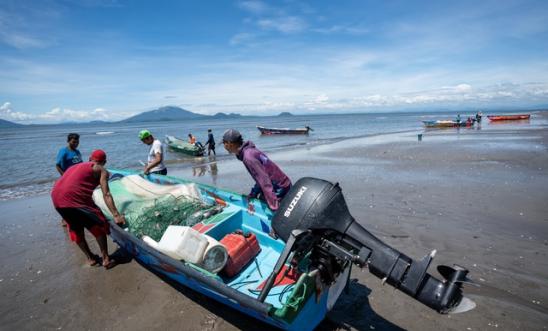
Press releases
Climate Change: IPCC report must herald ‘transformational change’

Today’s Intergovernmental Panel on Climate Change report warns that 1.5C-degree limit to rise in global temperature set to be missed by wide margin
Estimated 3.6 billion people are already climate-vulnerable
Risk of ‘catastrophic consequences’ for people around the world - Chiara Liguori
Responding to today’s Intergovernmental Panel on Climate Change report and its warning that global warming this century is currently set to exceed an agreed 1.5C degree limit without drastic and immediate cuts in greenhouse gas emissions, Chiara Liguori, Amnesty International’s Climate Advisor, said:
“This science-based IPCC assessment makes clear that without transformational changes now in our approach to tackling climate change the 1.5C degree warming limit will be missed by a wide margin, with catastrophic consequences for people around the world.
“Without immediate concerted action it is no longer possible to limit the global temperature rise to 1.5C degree this century.
“We must step away from the path that we are currently on which is leading to an almost 3C degree increase.
“The effects of inaction are already clear in the form of more extreme weather events that often hit hardest those who have been the least responsible for the mass consumption of fossil fuels that caused this crisis.
“The devastation of sea corals is already happening as oceans warm, putting the well-being of the hundreds of millions of people who rely on fishing in jeopardy.
“There can be no more excuses. Governments must adopt, in genuine consultation with all those affected, immediate policy and legislative changes to rapidly phase out fossil fuels and carry out an urgent and just energy transition which respects human rights and protects communities currently reliant on fossil fuel-based economies, Indigenous Peoples and others.
“There have been significant breakthroughs in renewable energy and recognition that better energy efficiency and developing public transit are key will put us on a more sustainable path. The investment potential is available to build entire energy systems based completely on renewables by 2050.
“Wealthy states must also significantly increase their funding to support lower-income countries to expand renewable energy and put in place adaptation measures to cope with climate change while adequately compensating people for the loss and damage they are facing.”
Billions climate-vulnerable
The IPCC report estimates that up to 3.6 billion people worldwide are already climate-vulnerable, and Amnesty is supporting widespread calls for a legally-binding Fossil Fuel Non-Proliferation Treaty, and also urging governments to agree to rapidly phase out the use and production of all fossil fuels at the COP28 climate talks later this year. The IPCC’s synthesis report forecasts that the 1.5C degree limit might be passed before 2035 and says greenhouse gas emissions must be cut by almost half by 2030 to come in, at or below the 1.5C degree limit, with further reductions to follow. However, the International Energy Agency says annual oil and gas output globally is expected to actually increase by 2030.